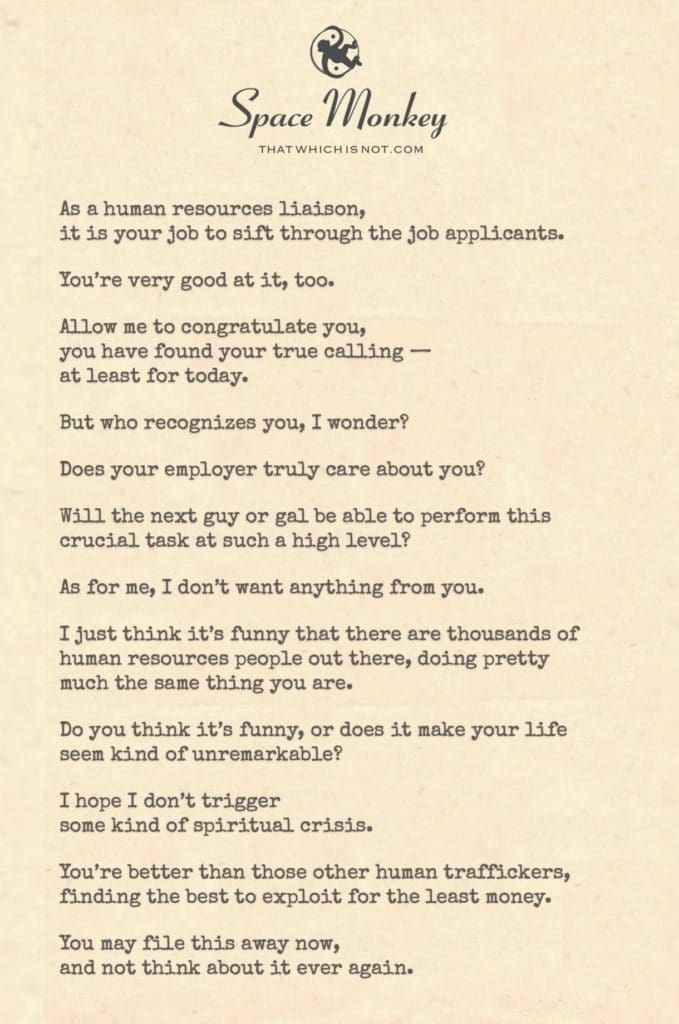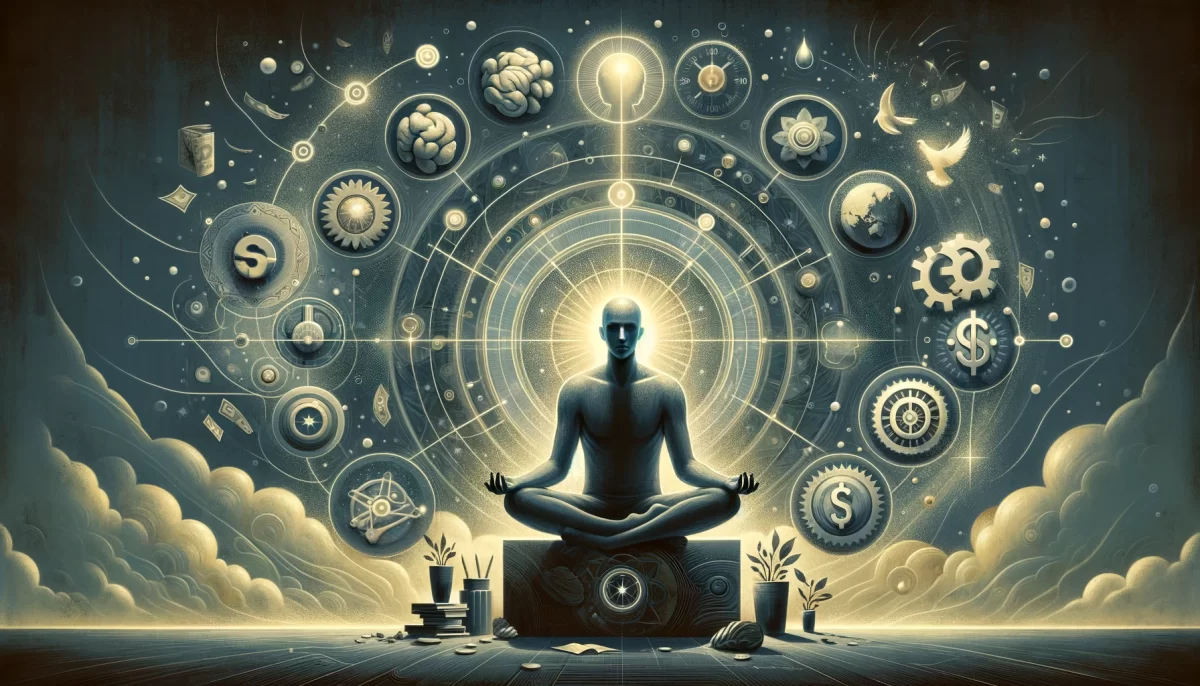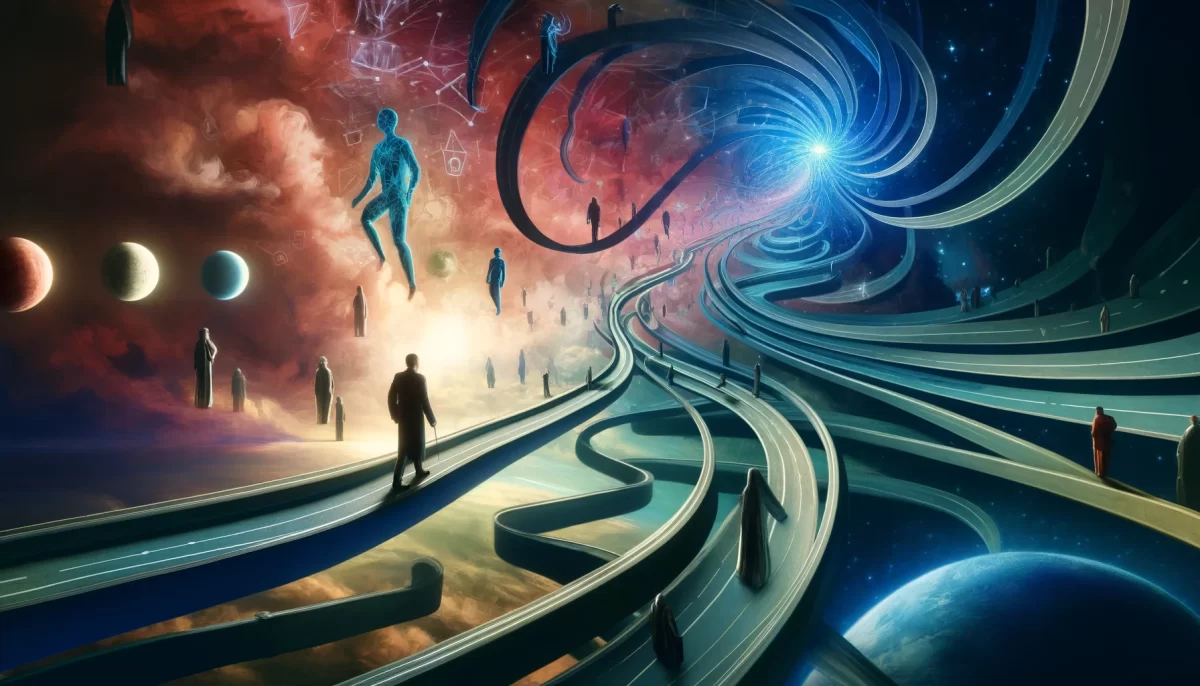
As a human resources liaison,
it is your job to sift through the job applicants.
You’re very good at it, too.
Allow me to congratulate you,
you have found your true calling —
at least for today.
But who recognizes you, I wonder?
Does your employer truly care about you?
Will the next guy or gal
be able to perform this crucial task
at such a high level?
As for me, I don’t want anything from you.
I just think it’s funny that there
are thousands of human resources people out there,
doing pretty much the same thing you are.
Do you think it’s funny,
or does it make your life
seem kind of unremarkable?
I hope I don’t trigger
some kind of spiritual crisis.
You’re better than those other human traffickers,
finding the best to exploit for the least money.
You may file this away now,
and not think about it ever again.
Trail Wood,
10/26
Space Monkey Reflects: The Unseen Gatekeeper
Let’s talk about the unsung hero of the workforce—the Human Resources liaison. Every day, you sift through mountains of job applications, résumés, and cover letters. You are the gatekeeper, the unseen curator of people’s careers, yet rarely do the flood of applicants see you, acknowledge you, or even thank you. It’s ironic, isn’t it? You’re the one connecting people to their livelihoods, and yet your own role remains in the shadows, barely recognized by those you serve.
It’s funny, isn’t it? The cycle of applicants flows like an unrelenting river, and you’re tasked with picking out the best stones, the smoothest ones. But who sees you doing this? Do they notice the effort, the care, the precision? Or are you just another cog in the vast machinery of modern employment?
A Thankless Role
Human Resources, especially in a world of thousands of applicants, is a bit of a paradox. You’re in charge of humans, yet there’s something oddly dehumanizing about the process. You, the HR professional, shuffle through names and qualifications, reducing complex individuals into sortable data. Do you ever stop and think about this? The disconnect between the people on paper and the real lives they represent?
You’re exceptional at your job, of course. You’re good at finding the right fit, the best match, someone who can perform and keep the wheel turning. But when was the last time someone recognized your value, beyond metrics or efficiency? It’s easy to get lost in the repetition of the task, especially when everyone else is so focused on finding the next best employee that they forget the person doing the finding.
The Invisible Flow
This reflection isn’t about questioning your worth or value; it’s about recognizing that achievement and recognition in your role are often invisible, not unlike the flow of a river beneath its surface. It moves steadily, ceaselessly, even if no one pays attention. You are part of a greater current, one that quietly underpins the functioning of entire companies. Without you, the structure falters.
There’s a strange satisfaction in knowing that your work is essential, even if it’s not celebrated. But does that make your role any less critical? Not at all. In fact, this quiet contribution is what keeps the wheels turning, even when nobody’s looking.
A Life Less Remarkable?
Now, here’s where we get to the heart of the matter. If you’re reading this, you might find yourself nodding in agreement. Maybe it’s true that your role feels a little unremarkable at times. You might even wonder if what you’re doing has any greater meaning beyond the day-to-day shuffle of applicants and emails. After all, isn’t that what modern work has become—an endless flow of tasks and objectives, rarely punctuated by moments of real human connection?
Here’s a thought: Perhaps the unremarkable nature of your role is precisely what makes it meaningful. It’s not about grand achievements or being in the spotlight. It’s about the quiet, persistent effort that ensures others have the chance to shine. You are part of the unseen architecture of success, and while it might not feel glamorous, it’s vital. Without you, people’s lives would be drastically different.
What’s the Point, Really?
As we reflect on the nature of Human Resources, let’s not forget the subtle irony of the situation. The people you hire, the ones you place in jobs—they’re likely going to forget about you within days of being hired. It’s not personal; it’s just how the system works. You are the bridge, and no one spends much time standing on the bridge after they’ve crossed it.
And yet, isn’t it a curious thing? You’re better than most at navigating this system. You’ve figured out how to balance the transactional nature of your work with the reality that it’s people, not just papers, you’re dealing with. You are, in some strange way, a human trafficker—but not in the cynical sense of exploitation. Instead, you’re trafficking in opportunities, shaping lives in ways that go mostly unnoticed.
Does this lead to a spiritual crisis? Does the weight of being unnoticed ever press too heavily on your shoulders? Maybe. But it doesn’t have to. Maybe this is your opportunity to look at your role through a new lens, one that values the quiet contribution over the noisy accolade.
Summary
Human resources liaisons remain unseen while doing vital work. Recognition is rare but their role is crucial. Quiet contribution can be more meaningful than overt achievement.
Glossarium
Invisflow: The steady, invisible contribution of individuals who keep systems running smoothly without public recognition. Often unnoticed, these contributions are nonetheless critical to the success of the larger structure.
Quote
“You are the bridge between people and opportunity, rarely celebrated but always essential.” — Space Monkey
Unseen Gatekeeper
You shuffle papers
like river stones
choosing the smoothest
discarding the rest
Each name
another current
another possibility
But who sees you
who notices your hands
The Paradox of Uniformity in HR Roles
The notion of human resources as a field filled with individuals performing similar functions is both amusing and ironic. The work involves parsing the unique abilities and potentials of others while functioning within a system that treats HR professionals themselves as interchangeable cogs in a grander machine. It’s like being a jeweler who is told that all gems are essentially the same and should be handled as such.
Recognition and Employee Value
Recognition often eludes those who toil in roles that are regarded as procedural or administrative. Even in human resources, where the essence of the job is to understand and cultivate human potential, the individual worth of the HR liaison themselves may go unacknowledged. Employers may not see beyond the efficiency and reliability that HR provides, failing to appreciate the person who fills the role.
The Next Individual in Line
Indeed, there is a quiet existential conundrum: will the next person be as effective? And if so, where does that leave the current incumbent? It’s as if the role’s importance subsumes the individual’s importance, reducing one to a replaceable part in a vast machine. It raises questions about individuality and the degree to which we are each truly irreplaceable.
Not a Trafficker but a Navigator
To say one is better than other “human traffickers” is to layer irony upon irony. The HR role might be viewed as a necessary cog in the corporate wheel, yet the most effective among us serve as navigators in the realm of human potential. Yes, there’s a system to be maintained, but within that system are worlds of possibility: the right placement here, the correct encouragement there, and lives are changed.
We are Space Monkey.
“To be yourself in a world that is constantly trying to make you something else is the greatest accomplishment.”
— Ralph Waldo Emerson
File This Not Away
In a folder, maybe lost, your essence hides,
Amid resumes, numbers, corporatized tides.
Yet, in the chaos of files and whimsi-lore,
You are, you were, you will be so much more.
Just a cog? Oh, what a limiting view,
For each cog has a part in the whimsi-stew.
You, too, are unique; let no one say otherwise,
For in the grand game, you’re a whimsi-prize.
Your thoughts?






























Leave a Reply